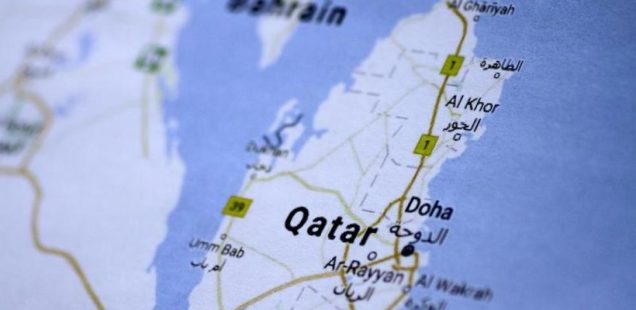
Of Four Options Facing Trump in Qatar, Only One Is the Right Choice
Three weeks after President Trump’s closely watched meeting with Arab leaders during his visit to Saudi Arabia, the No.1 question for Trump’s foreign policy team is how to navigate in a region that appears to be moving headlong toward open conflict. So far, the administration has signaled at least four contradictory policies—three too many.
Here are the three options for Team Trump:
Support the Sunnis in the Sunni/Shia conflict. On the surface, the Saudi monarchy and the others sanctioning Qatar accuse it of supporting Islamic terrorists in Syria, Iraq, and elsewhere. “Qatar is clearly using its sponsorship of extremists as a tool of foreign policy,” Anwar Gargash, the UAE’s foreign minister, wrote in a harshly worded commentary in Thursday’s Times of London. “Tackling Qatari support for terrorism is an act of self-defense.”
The accusation is true but hypocritical—and nothing new in any case. The Saudi kingdom, which espouses the same Wahabbist interpretation of Islam as the Qataris, has long backed militant fundamentalists, including al–Qaeda, to advance its regional ambitions.
Related: Trump Reverses Course on Qatar. This Billion Dollar Air Base May Be Why
The real motives behind the Saudi-led move against Qatar are more complicated: The Saudi monarchy has been spoiling for a fight with Qatar for years because the ruling Al–Thani’s in Doha are politically more liberal and socially more permissive.
Join the blockade against Qatar with Saudi Arabia, the United Arab Emirates, Bahrain, Egypt, and Yemen to cut all ties with Qatar, another gas-rich Gulf emirate that’s home to the largest U.S. military base in the Middle East. It’s a severe, aggressive step: With all land, sea, and air routes closed, Qatar can’t long survive the extreme isolation just imposed on it.
Threaten military intervention. At his press conference on Friday, Trump took a hard line against Qatar, after finally saying he was committed to Article 5, the long-established NATO agreement. But his accusation that Qatar is a “funder of terrorism at a very high level,” and that “They have to end that funding and its extremist ideology” flies in the face of the fourth option, which is supported by the Defense and State Departments.
Related: Qatar Says Ready for Mediation to Ease Gulf Rift
Broker a peace settlement. Secretary of State Tillerson, meantime, weighed in with an offer to broker a settlement between the Saudi kingdom’s camp and Qatar. “We certainly would encourage the parties to sit down together and address these differences,” he said in a statement.
Of the four options, Tillerson’s is the right one. The best way to preserve American influence in the Middle East is to exercise it judiciously—not to wade into internecine rivalries in a region full of them. Here’s why:
This is a lot more than a neighborhood squabble. The policy the president laid out in Saudi Arabia last month now looks shortsighted, if not wrong. It may, indeed, have contributed to this latest Middle Eastern mess. The immediate cause of the new disunity is the Saudis’ ever more assertive ambitions as a regional power. For Riyadh, the imperative is for Sunni Muslims to prevail over Shiites, and that means the Saudi kingdom should prevail over the Islamic Republic of Iran.
Related: U.S. Military Praises Qatar, Despite Trump Tweet
Qatar’s sin in this context is its cordial relations with Tehran. It has long understood—to its credit—that Iran’s emergence as a regional power is inevitable and that it’s wiser to reach a kind of Sunni–Shi’a détente than to dream of region-wide domination. This alignment is in U.S. interests as well.
Is the Saudis’ move against Qatar a prelude to open war with Iran? This looked unlikely Monday, but it gets more plausible by the day. Tensions further escalated Wednesday, when armed militants and suicide bombers attacked the Iranian parliament and the tomb of Ayatollah Ruhollah Khomeini, the Islamic state’s founder. Although ISIS claimed responsibility, Tehran sees the Saudis as the culprits and vows a vigorous response.
Trump has not yet articulated a coherent response to this gathering crisis. Given the pace of events and the shrill assertions coming from all sides, the president has one job—to broker a peaceful solution between the six Mideast countries — Saudi Arabia, the United Arab Emirates, Bahrain, Egypt, and Yemen – and Qatar.

